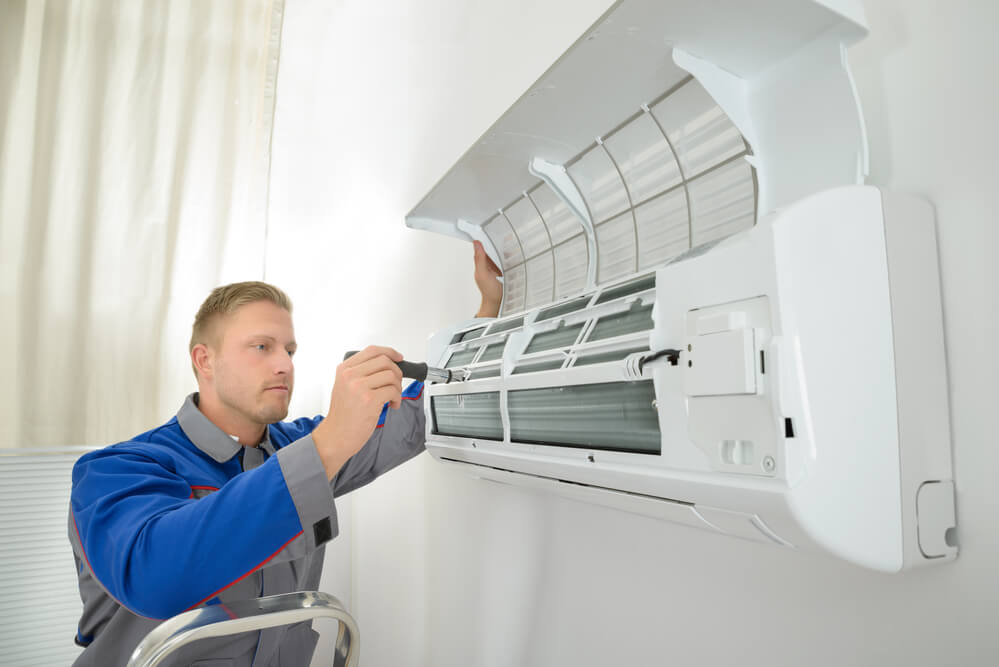All air conditioners drip water. According to Eastern Air Conditioning Sutherland Shire (http://easternairconditioning.com.au/sutherland-shire/), it’s only an issue when there is dripping in the wrong area or when there is too much dripping.
Why Do Air Conditioners Drip?
The reason that all air conditioners drip water is simple. Air conditioners are not only useful in cooling your room, but they also condition the air and reduce the humidity in it to make the room much more comfortable for you.
Air conditioners have cooling coils or evaporators that are used to collect moisture from inside the room. The water vapor is then cooled and turned into liquid water by collecting onto the cold surfaces inside the air conditioning unit. It’s essentially the same thing as the water condensation that forms on iced drinks.
How Much Water Do Air Conditioners Drip?
The amount of water an air conditioner drips can vary widely. It depends on the current humidity level outside and the temperature you set the thermostat. The type of air conditioner is just as important. We have to take into account the size, efficiency, and installation of the air conditioning unit.
For example, during the summer it gets really hot, humid somedays. You will be able to easily see a window air conditioning unit leak up to two gallons of water every day.
On the other hand, a central air conditioning system, on the same day, can drip up to 20 gallons of water a day. But this water doesn’t usually go to waste. Most of the time there is an installation that is able to divert the water that is produced into drainage pipes that are used to irrigate your lawn.
But it will be obvious when there is too much water dripping. If you see a puddle somewhere, then that is something that should be looked into. Because even though there is a lot of this water is being sent out, it does it in a slow process.
Where Does Air Conditioner Water Drip?
Whenever an air conditioner drips water, the condensed water is supposed to leak from the back of the unit. The reason for this is because the cooling coil that is used to drip water into specific, built-in channels are angled down towards the backside of the air conditioner.
The water does serve an internal function as well. It works to cool down the heating coils that are being used inside the machine. But the majority of the water that is produced drips out of the unit.
What Causes Air Conditioners to Leak Water?
A leak and a drip are two different things entirely. A drip is slow, a leak can be extreme. Something to check out if you have a leak is:
- Dirty air filters: when air conditioning filters get dirty they can partly block or completely clog the air conditioning evaporators or cooling coils. This makes them more susceptible to being frozen and causing excess water to overspill from the drainage pan.
- Broken condensate pan: depending on your air conditioning unit, your pan could be rusted or cracked or split. This makes it easy for water to leak out of the unit.
- Improper Installation: if your air conditioner is new and it starts to leak then there was definitely an issue with whoever installed it. Improper parts are easy ways to mess up the unity of the air conditioning unit.
Troubleshooting Air Conditioner Dripping
The only time that you should worry about your air conditioning unit is if:
- The air conditioner is not dripping, because it may mean that it is not doing its job properly by dehumidifying your room.
- The air condition is dripping water from the wrong place and it is visible. This could mean a lot of things some big, some small.
The most common issue with air conditioner condensation is when the water is dripping from the front of the air conditioning unit. This is from an error when installing the conditioner. Drips like these can ruin furniture and flooring. Even worse it can cause mold to develop. A temporary fix would be to tilt the unit more backward so that it is more likely to drain backwards than forwards.
When there is water dripping from the sides or from the front of the air conditioner, the problem could also be from air leaks. This means that the air conditioner is probably not properly sealed in place.
Hot air is getting into the unit and causes a false water condensation when it hits the cool air conditioning surfaces inside the unit. A fix to this would be to use caulk and insulation around the air conditioner to reduce the chance of increased condensation. Luckily, this is also a great way to boost efficiency and reduce energy bills.
If there is ice forming or if there is no water dripping, then you need to call an HVAC professional to get further assistance.

